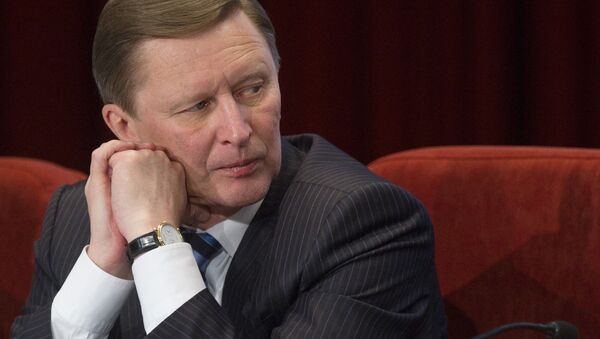MOSCOW, January 18 (R-Sport) - Russian football shows no signs of progress because three-quarters of the country’s top-flight teams live off government money, the head of Vladimir Putin’s presidential administration has told R-Sport.
With six years to go until Russia hosts its first World Cup, Russian clubs are major players in European competition and the transfer market, exemplified by state-funded Zenit St. Petersburg’s €80 million swoop for Axel Witsel and Hulk in September.
“I am extremely pessimistic about the development of domestic professional football,” said Putin aide Sergei Ivanov, a former member of the Russian FA’s executive committee.
“Of 16 Premier League clubs here, only four are private. What sort of development can we talk about?”
Zenit's transfer market muscle is the result of lavish financing from its owner, state gas company Gazprom. Other well-known clubs under state control include Lokomotiv Moscow, owned by the state railways, and Rubin Kazan, the property of the Tatarstan regional government.
Of the privately-owned Premier League teams, Spartak Moscow, Anzhi Makhachkala and FC Krasnodar are all backed by rich benefactors, while CSKA Moscow’s ownership structure is unclear.
Ivanov said one of the reasons for Russian football’s stagnation was the lack of any major domestic TV rights market.
“In the Russian Federation, not a single sport, including football, is able to earn from TV broadcasts in the way it should be in the entire civilized world,” he said.
“We don’t have a market any more, it didn’t work out. There’s dependency that has run rampant.”
With meager earnings from gate receipts and TV deals, top executives at Russian clubs have voiced fears they could be shut out of European competition under UEFA’s new financial fair play rules that block clubs posting vast losses.
CSKA, Anzhi and Zenit have all expressed support for creating a regional league with major teams from nearby countries in an attempt to shore up revenue, and a merger with the Ukrainian Premier League has been proposed.

